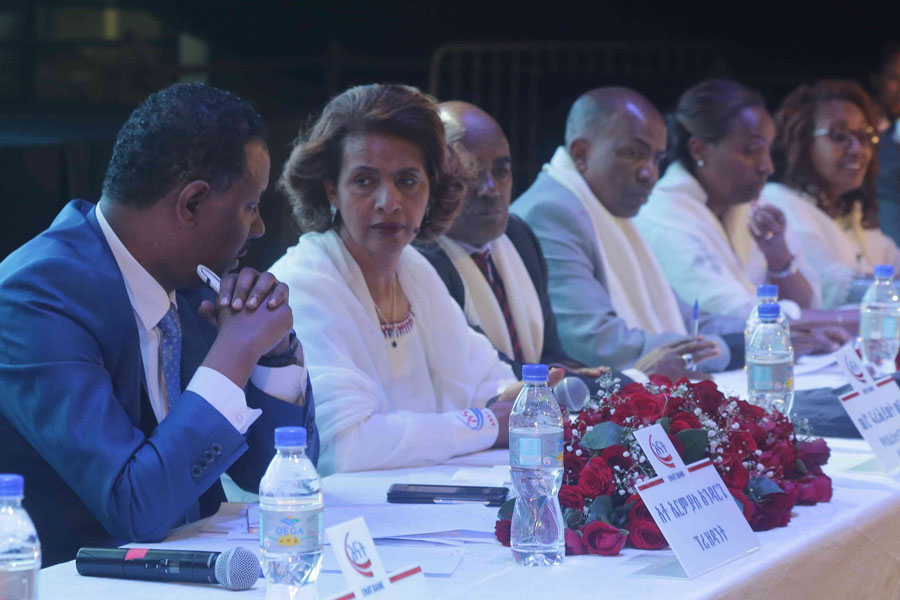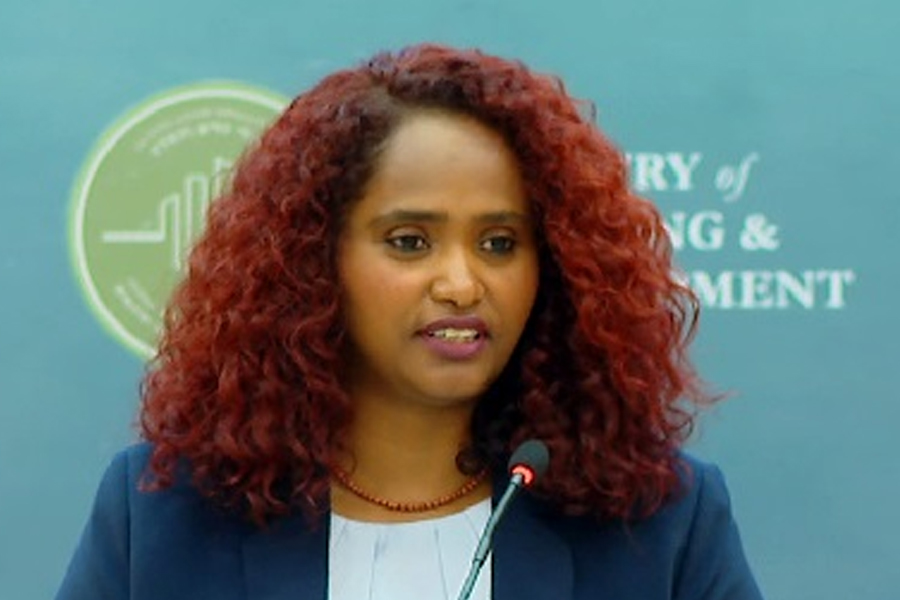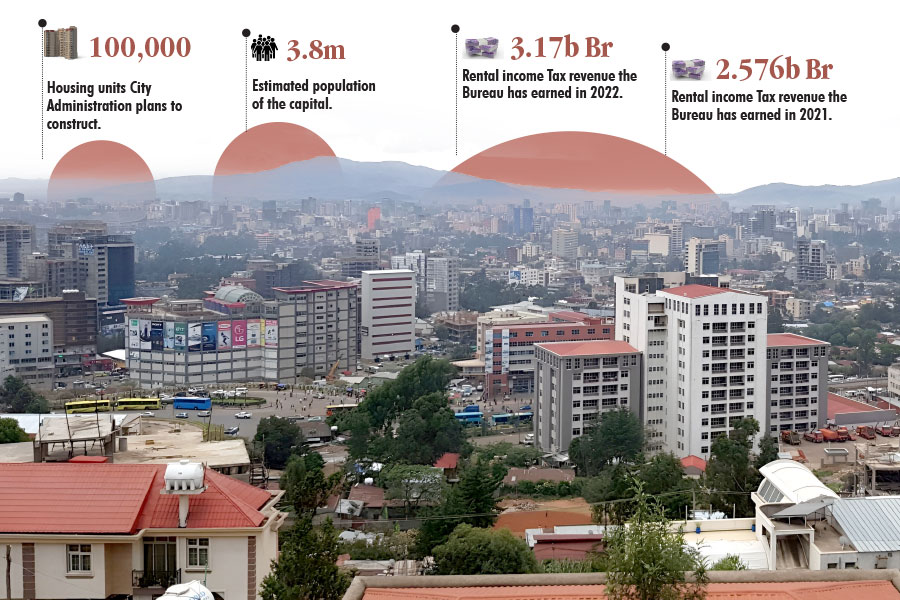
Jun 17 , 2023
By BERSABEH GEBRE ( FORTUNE STAFF WRITER )

A new bill that governs licensing of miners has removed a special small-scale mining classification that stood between artisanal and small -scale producers. The category allowed transferring licences between regional states, encouraging illicit mining conducted by operators, which according to officials, did not go in line with keeping the public interest.
The bill focused on licensing issues that were cited to have impacted the production of mines, particularly gold. According to Tsehay Mulugeta, head of Legal Affairs at the Ministry of Mines, the classification benefited a few individuals with the ability to transfer licenses, which is a concept unfamiliar in other countries.
"It was fictitious," he said.
Officials cite this has called for the fourth amendment since the law was first enacted over five decades ago. While adjustments on particular issues have been made several times, the existing law was passed by parliamentarians in 2010.
Last week, the Standing Committee on Industry & Minerals Affairs, chaired by Amarech Bakalo (PhD), requested all 31 federal institutions, regional mines bureaus and investors for a discussion and commented on the proposed bill.
The legal expert from the Ministry said the bill aims to ensure the balance between the government and private sector profitability while he briefed participants about the pertinent articles that were amended.
Participants from the regional state strongly argued against the proposal.
Mute Long, director of mines development at Gambella Regional Mineral & Energy Resources Agency, strongly opposes the removal of the special small mining licence. He said that hundreds of livelihoods rely on this category in the regional state.
The regional state has 45 associations with up to 15 members, each engaged in special small-scale mining, which will be limited to seven. The special small-scale miners accounted for 90pc of the 146Kg of gold supplied by the regional state in the first nine months, a significant decrease from the 1,400Kg supplied last year.
"We prefer artisanal mining be revoked instead," said Mute.
He acknowledges that all the amount of extracted gold is not supplied to a central bank, attributing the high price of fuel and the premium rate offered by the regulators among the reasons miners are holding on. The recent adjustment made by regulators to increase royalty fees to a new high of 55pc for five kilograms of gold has made the supply better.
A two percent equity share is stated for regional states from large-scale mining, while five percent is allocated to the federal government. Officials from the regional states argued that their share should be increased.
Haile Abebe, head of the Amhara Regional State Mines Bureau, said the share for the respective regional states is too small. Minister Habtamu responded that no written article allotted shares for regional states in the existing law.
Artisanal miners suffered during the dry season with a scarce water supply, while the rainy season proved to have been difficult to carry out their work. Considering the seasonal peculiarity, the bill proposes that the validity of their licenses be elevated to three years with the possibility of adding two more years.
Arabi Abdullahi, a representative from the Benshangul Regional State Mines Bureau, argued that the draft was made without conducting gap assessments. He said the supply volume to the central bank has improved since artisanal miners upgraded themselves into special small-scale miners.
Experts believe that amending laws may create inconsistency and confusion in a sector such as mining which is a long-term endeavour. However, the fate of the excluded category did not pose a serious concern.
Wondmagegn Gebresilassie, who has worked in the sector for three decades and previously served at the Ministry, observes that special small-scale miners could lower their classification to artisanal or scale up capacity and become small-scale producers.
"It souldn't be up for debate," said Wondmagegn.
Gold, comprising more than 80pc of the country’s mineral exports, brought in 150 million dollars over the third quarter of the current fiscal year. Habtamu told Parliament the volume has declined by half from what it was last year.
Royalties fees have brought in 281.8 million Br in the last nine months. Developers that were present in the discussion requested that adjustments on the royalty fees should consider the cost of production. They recommended adding a social license to boost production in the areas acquired for mining purposes.
Officials were dismayed by the fact that their inputs were not requested during preparation, indicating that the bill is a look-alike to the referred countries than a federalist country. However, Habtamu said it should be seen as an aspiration to reach their level in the sector while mentioning that the amendment should be seen in a positive light for the greater good.
He referred to earnings of South Africa, Ghana and Tanzania that were considered during the preparation to show the dwarfed level, emphasising that discussing the mandate is irrelevant as the nation loses revenue from illegal smuggling.
The Minister pointed his finger at the regional authorities for licencing 600 associations covering the 90pc of the gold supply. He recommends the establishment of a strong control mechanism to fight contraband.
"It's painful," said Habtamu.
PUBLISHED ON
Jun 17,2023 [ VOL
24 , NO
1207]

Fortune News | Apr 10,2023

Fortune News | Sep 22,2024

Radar | May 06,2023

Fortune News | Apr 03,2023

Radar | Jun 30,2024

Dec 22 , 2024 . By TIZITA SHEWAFERAW
Charged with transforming colossal state-owned enterprises into modern and competitiv...

Aug 18 , 2024 . By AKSAH ITALO
Although predictable Yonas Zerihun's job in the ride-hailing service is not immune to...

Jul 28 , 2024 . By TIZITA SHEWAFERAW
Unhabitual, perhaps too many, Samuel Gebreyohannes, 38, used to occasionally enjoy a couple of beers at breakfast. However, he recently swit...

Jul 13 , 2024 . By AKSAH ITALO
Investors who rely on tractors, trucks, and field vehicles for commuting, transporting commodities, and f...

Jul 12 , 2025
Political leaders and their policy advisors often promise great leaps forward, yet th...

Jul 5 , 2025
Six years ago, Ethiopia was the darling of international liberal commentators. A year...

Jun 28 , 2025
Meseret Damtie, the assertive auditor general, has never been shy about naming names...

Jun 21 , 2025
A well-worn adage says, “Budget is not destiny, but it is direction.” Examining t...